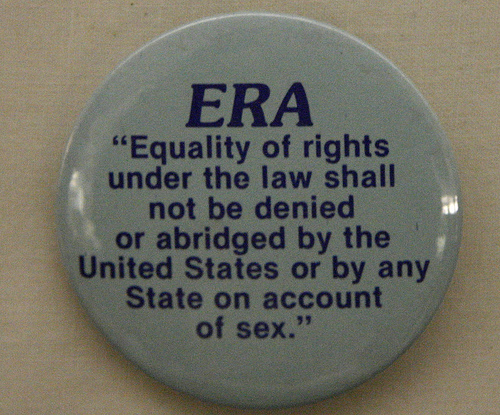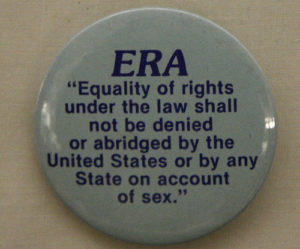
 Have you followed the history of the ERA? This month we celebrate the anniversary of both the Seneca Falls Convention and the introduction of the "Lucretia Mott Amendment," (introduced by Alice Paul in 1923, in Seneca Falls for the celebration of the 75th anniversary of the 1848 Woman's Rights Convention) which read: "Men and women shall have equal rights throughout the United States and every place subject to its jurisdiction."
Have you followed the history of the ERA? This month we celebrate the anniversary of both the Seneca Falls Convention and the introduction of the "Lucretia Mott Amendment," (introduced by Alice Paul in 1923, in Seneca Falls for the celebration of the 75th anniversary of the 1848 Woman's Rights Convention) which read: "Men and women shall have equal rights throughout the United States and every place subject to its jurisdiction."
Back in 1923 Alice Paul, founder of the National Woman’s party and suffragist leader, decided that the next natural step after achieving the 19th amendment (allowing women the right to vote) would be the Equal Rights Amendment (ERA), affirming the equal application of the U.S. Constitution to both females and males.
Between 1923 through 1972 the amendment was introduced into every session of congress until it was finally passed. It was then sent to the states for ratification. The deadline was June 30, 1982 but was 3 states shy of the 38 needed for ratification.
It was reintroduced in the 110th Congress but no deadline was imposed. Which is a good thing because the 3 states needed to ratify, still haven’t come forward.
Alabama, Arizona, Arkansas, Florida, Georgia, Illinois, Louisiana, Mississippi, Missouri, Nevada, North Carolina, Oklahoma, South Carolina, Utah, and Virginia have all yet to ratify the ERA.
Virginia voted to become the 36th state to ratify the ERA on a 26-14 vote in 2009. But a few days later, the bill died in a subcommittee of seven men. In 2013 an ERA ratification bill was introduced in the House rather than the Senate and was sent to the House Rules Committee, where it once again failed after being tabled.
Three simply worded sections are all there is to the amendment,
Considering women have been trying to get this amendment added to the constitution since 1923, it’s no wonder gender bias still runs rampant in the United States. If you live in one of the above listed states be sure and contact your state legislature and find out why they haven’t voted to ratify or have your daughter write a letter of her own.
It's also a great opportunity to talk with your daughter about SheHeroes in politics and why it's important for young women to be aware and active when it comes to being involved in her country and community. Just watch our interview with SheHero Polly Baca and see for yourself.